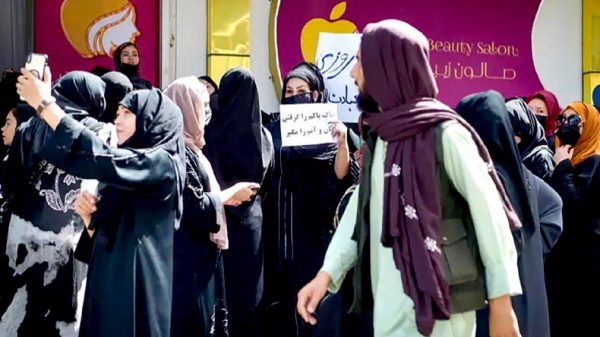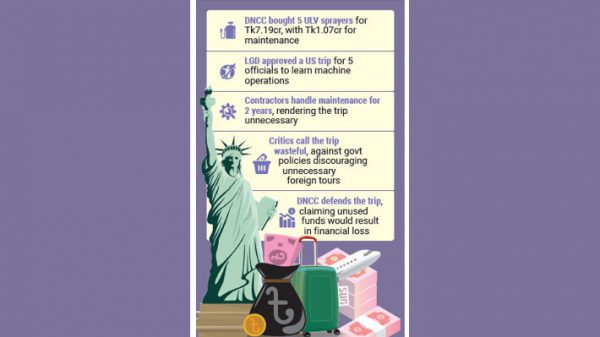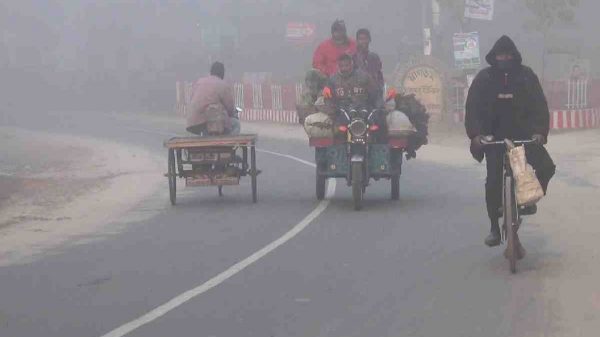In the land of the hopeless

by Emran Feroz:
More than two years after the Taliban seized power, Afghans are battling psychological problems in response to the apparent hopelessness of the situation in their country, writes Emran Feroz
‘I FORGET all my worries when I spend time with them’, says Wasey, 38, from the west of Kabul, as he stands on the roof of his house and feeds his pigeons. The Afghan man, who earns a living as a driver during the day, keeps around two dozen of the birds here.
‘Kaftar bazi’, or the keeping of pigeons, is common practice in Afghanistan. Unique birds are particularly sought after. Wasey holds a brown-and-white pigeon on his arm like a trophy. ‘This one here is valuable. But it’s not about the money’, he says, as he strokes the pigeon and his young daughter cavorts around with some of the other birds.
Wasey’s pigeon collection is worth around a thousand US dollars. At one point, high-ranking army generals came to him and wanted to inspect his birds. They were also enthusiastic pigeon fanciers. Since the return of the Taliban in August 2021, however, they’ve left the country.
For Wasey, the pastime is more about self-therapy. After the working day is done, he needs to look after his mental health, he says. Otherwise, there’s a danger he’ll lose it and go mad. ‘Daily life here is depressing and gloomy. I’m living on the breadline and I can barely feed my family,” says Wasey. He hasn’t replaced the cracked windscreen of his Toyota Corolla since it was damaged in a Taliban suicide attack a few years ago.
These days there are almost no attacks. Today, on the 10th day of the Islamic month Muharram, it was particularly quiet. Fearing attacks, the Taliban had sealed off the entire capital and shut down the nation’s mobile network and Internet. Suddenly, the telephone calls and WhatsApp messages that people relied on were no longer possible.
Afghanistan’s Shia minorities, who in the past would have taken to the streets for Ashura, had to comply with the Taliban’s regulations. ‘No wonder. They turned everything off because they know all the tricks in the book themselves. The attacks have stopped because the terrorists of old are now in charge,’ says Wasey cynically. The only thing that can soothe him on days like this are his pigeons.
War on women
INTERNATIONAL troops under US leadership pulled out of Afghanistan more than two years ago. The country’s last president Ashraf Ghani fled along with his corrupt power clique and after 20 years in shadows, the Taliban took control of Kabul once more. The country has been in limbo ever since.
To this day, not a single nation has recognised the Taliban regime. Afghanistan’s foreign currency reserves totalling some 10 billion US dollars were frozen and the nation is under international sanctions. It is a punishment that mostly affects regular people rather than the Taliban.
Alongside fear and poverty, Afghan society is grappling first and foremost with a sense of hopelessness and a lack of perspectives. There’s been a huge rise in the number of people affected by depression and anxiety. The suicide rate has also gone up, primarily among girls and women. While the Taliban’s political newspeak always reiterates the claim that ‘peace’ has been restored to the country, it neglects to mention that the regime has practically declared war on half the population, in other words, Afghan women.
Since the return of the extremists, Afghan women have been banned from attending secondary school. They were also slapped with a university ban late last year. Women’s freedom of movement is being increasingly restricted daily, as are their opportunities to work.
For example, the Taliban recently ordered the closure of tens of thousands of beauty salons. These were among the country’s last independent female-run businesses. They also served as a safe space, which now no longer exists.
Disenfranchisement continues
‘THIS decision shattered our prospects. I employed seven young women in my salon. Now they don’t know what to do,’ says Fawzia Akbari, a makeup artist from Kabul. The 28-year-old businesswoman now plans to go to Pakistan and open a new beauty salon there. Her former employees will likely remain jobless.
‘They’re trying to continue their work at home, but this appears to be more difficult than previously thought. The others will probably have to get married sooner or later, so that a man can take care of them,’ says Akbari. The Taliban had equated the salons with brothels and spoke of alleged moral offences taking place in the salons. They also claimed that the services offered there, usually in preparation for weddings, were overpriced.
‘Basically, we’re not going to be allowed to do anything. We’re being disenfranchised more and more every day,’ says Rubina Sarwari, a student and IT specialist. She continues to work for a small IT company in downtown Kabul — under strict conditions. She had to discontinue her IT studies on the orders of the Taliban, officially at least.
Strict gender segregration
‘I’M STILL attending courses and I’ve had to evade Taliban checks several times. But I don’t let things get me down that easily, not even at work,’ says the 28-year-old.
It’s unclear how long her job will even exist, she adds. She and her male colleagues must abide by strict new regulations concerning the veil and gender segregation. Taliban morality police carry out regular checks, she says. Men such as her supervisor then take out their frustration on their female colleagues. ‘He threatened several times to throw me out if I didn’t respect the Taliban’s rules,’ says Sarwari.
Other women no longer see their future in Afghanistan and are trying to leave the country. This is also possible through legal channels i.e. by means of visas or possible scholarships. But the Taliban is intervening here too. Just a few days ago, 70 Afghan women promised places at a university in the United Arab Emirates were prevented from travelling at Kabul airport.
According to Taliban decree, girls and women are not allowed to travel without a close male relative (‘mahram’).
‘Talibanisation of education system’
WHILE the Taliban busy themselves with the consolidation of their dictatorship, it is educated people first and foremost who are leaving the country. ‘Many of my lecturers are already abroad. I’ve invested a lot in my education, but maybe I should’ve given my money to a trafficker so he could get me out of here,’ Bezhan Karimi says meekly.
He recently successfully completed his bachelor’s degree. But he saw no cause for celebration. Half of his class, his former co-students, were absent due to the existing education ban. Karimi and other students at Kabul University are also no longer allowed to wear western clothing. Their beards have also grown longer. The ‘Talibanisation’ of the education system continues apace.
Some of the former lecturer’s posts have since been filled by Taliban officials. These people glorify violence and extremism, says Karimi. No one is allowed to challenge the orders of supreme Taliban leader Hibatullah Akhundzada, who resides in southern Kandahar and whose face no one knows. ‘For them, that would be like apostasy,’ Karimi adds.
‘Still here?’
FOR Karimi and other young people in Kabul, the status quo is hopeless. Many of them have already left Afghanistan. Those who remain seek a way out — and this is getting more expensive by the day. A visa for Kazakhstan or Pakistan now costs a three-figure dollar fee. ‘Still here? — a phrase that’s now become a kind of running gag whenever you see friends or acquaintances,’ Karimi explains.
Mohammad Wali also had a pay a large sum for his visa. Anyone paying less ends up on a waiting list and that’s somewhere the former elite soldier with the Afghan army can’t afford to be. The Taliban are still on the lookout for ‘Commander Wali’, as the 30-year-old is known.
Before the fall of Kabul, he fought for years in the north of the country. ‘I’ve killed many members of the Taliban. They’ll never forgive me,’ says Wali. The regime’s official line is that there’s an amnesty in place for former members of the security forces, but many Taliban fighters disregard this and pursue their own revenge agenda.
There’s still a search warrant out for Wali in the provinces where he was previously stationed. Many of his former comrades left for Iran or elsewhere long ago. They weren’t evacuated by the western troops for whom they once risked their lives. The ex-soldier sums up: ‘I fought side by side with Germans and Americans, but in the end they threw us to the Taliban.’
Qantara.de, March 6. Names have been changed for security reasons.


























Leave a Reply